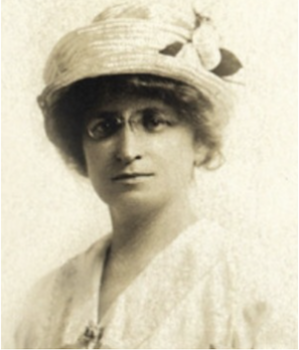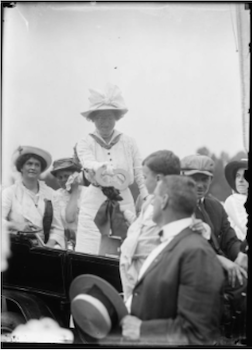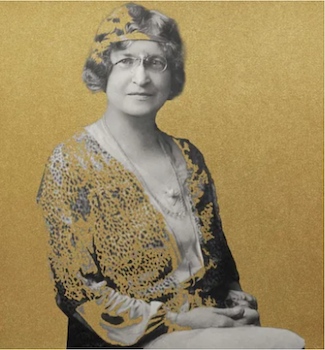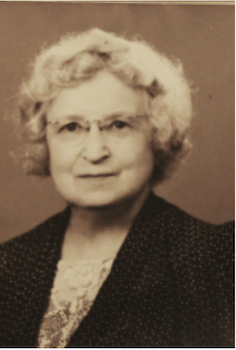
Born in 1872, Mary Ware Dennett was an American women's rights activist, anti-war advocate, birth control reformer, and sex education pioneer. Despite living in a highly patriarchal society, Dennett sought to challenge the status quo through her work in sexual education and reproductive healthcare.
Dennett spent her childhood in Massachusetts, moving from Worcester to Boston following the death of her father in 1882. At this time, her mother was unable to find a profitable job in the United States, due to rampant gender-based discrimination. As a result, she started working as a chaperone for young women traveling to Europe. While her mother was abroad, Dennett and her two siblings attended a public school in Boston, where she excelled academically.
In 1887, Dennett began high school at Miss Capen's School for Girls in Northampton, Massachusetts, which was later renamed Williston Northampton School. Throughout high school, Dennett continued to excel academically, subsequently gaining acceptance to university.

Upon graduating in 1891, Dennett enrolled in art school at the School of Art and Design in the Boston Museum of Fine Arts, where she graduated with honors in 1895. Shortly thereafter, she studied antique leatherwork in Spain and Italy for three months. Later that same year, she began her tenure at the Department of Decoration and Design at the Drexel University Institute of Art, Science, and Industry, teaching design and decoration from 1894 to 1897. Notably, this institute was created to “provide a practical education and a means of upward mobility for sons and daughters of the urban working class.”
In 1900, she married architect William Hartley Dennett, with whom she had three boys born in 1900, 1903, and 1905. However, her second child tragically passed away just three weeks into infancy. Due to her extremely difficult experiences in labor, her doctor requested that she and her husband not have any more children. Thus, because of a lack of access to contraception, they abstained from intimacy. In 1912, she filed for divorce from her husband, during a time in which divorce was not socially acceptable, due to his affair with another woman.
Mary’s advocacy regarding women’s rights spanned many areas, but it was not devoid of vast ramifications. She was prosecuted in the late 1920s for sending her pamphlet, The Sex Side of Life, through the mail in the widely known legal case against her: U.S. vs. Mary Ware Dennett, where she was represented by the American Civil Liberties Union (ACLU), who argued that the pamphlet was an important educational tool and fought against the Federal Comstock Law. Fortunately, the court sided in Mary’s favor, allowing her to continue the distribution of her The Sex of Life pamphlet.
The Comstock Act of 1873 was a series of current provisions in federal law that would “criminalize the involvement of the United States Postal Service, its officers, or a common carrier in conveying obscene matter, crime-inciting matter, or certain abortion-related matter.” The Act is often associated with U.S. Postal Inspector and anti-vice activist Anthony Comstock. Comstock was unrelenting in his determination to uphold these laws, which were often inappropriately applied – as they were in the case of Dennett. While these laws still exist, they are much more limited in scope and not as broadly applied to contents such as this one.

In addition to her advocacy regarding women’s rights, Dennett was also a staunch pacifist, as she was consistently anti-war. Her anti-war sentiments were exemplified when she served as the field secretary for the American Union Against Militarism in 1916. There, she organized meetings in various large cities across the country. Furthermore, she was the executive secretary of the League for Progressive Democracy. Here, she resigned as a form of protest following President Woodrow Wilson’s decision to enter the war in 1917.
Shortly afterward, Dennett co-founded the People's Council of America for Democracy and the Terms of Peace – often simply called the People's Council of America. The People's Council of America was a socialist peace group that utilized the publication of literature, the conduct of mass meetings, and public demonstrations to mobilize American workers and intellectuals against the Vietnam War. In addition to her leadership in this group, she was a staunch advocate of homeopathy, which is an alternative medical practice developed in the late 1700s that uses natural substances in small amounts to treat illnesses and restore health. She even served on the American Foundation for Homeopathy, which is “committed to providing educational resources to the homeopathic community and the professionals who serve it.”
Alongside advocates Jesse Ashley and Clara Gruening Stillman, Dennett also co-founded and served as the Executive Secretary for the National Birth Control League (NBCL) in 1918. The NBCL encouraged sexual education as well as the availability and use of birth control for women. In this role, she spearheaded a campaign to make birth control information legal, giving lectures and lobbying state legislatures to change the laws.

In 1919, Dennett wrote and distributed the pamphlet The Sex Side of Life: An Explanation for Young People, an educational resource that began to revolutionize sexual education. It was around this time that her sons became curious about the topic, which encouraged her to not only answer their questions but provide answers to a larger audience. The same year, she founded the Voluntary Parenthood League (VPL), which advocated for increased access to contraception.
After two years as field secretary of the Massachusetts Woman Suffrage Association (MWSA), Dennett was elected corresponding secretary of the National American Woman Suffrage Association (NAWSA) and moved to New York City to begin working there, where she was the principal organizer of the National American Woman Suffrage Association's literature department. Here, millions of copies of numerous pamphlets and leaflets regarding the information on reproductive health, including the widely known, The Real Point, which was produced and distributed. Her remarkable organizational abilities were demonstrated as she played a crucial role in leading the association to victories in states including Washington, California, Oregon, Arizona, Kansas, Illinois, and Alaska.
Later in her tenure, she was embroiled in a dispute with the board over how the department was to be run and endowed and believed that the National American Woman Suffrage Association (NAWSA) was unethical, ultimately leading her to resign in 1915.
Today, Mary Ware Dennett is widely revered as one of the most central people to reproductive justice. As we remember her immense contributions, it is also critical to remember the challenges she faced along the way, many of which current Republican lawmakers are hoping to see re-emerge. Their efforts have only become amplified following the 2022 overturning of the landmark U.S. Supreme Court case Roe v. Wade that legalized abortion throughout the country. However, if we as a society collectively mobilize and fight against these efforts, we can follow her example and ultimately ensure reproductive equity and justice for all.
Why Did I Choose to Research Mary Ware Dennett?
Following the 2022 overturning of Roe v. Wade, I began to explore advocates for birth control and sex education for women, which is when I discovered Mary Ware Dennett. I was immediately fascinated and inspired by her work and advocacy for women. Thus, I wanted to spotlight her and inform others about her incredible work and the indelible mark she has left.
Works Cited
The Editors of Encyclopedia Britannica. “Mary Coffin Ware Dennett.” Britannica, 21 July 2022, https://www.britannica.com/biography/Mary-Coffin-Ware-Dennett
Malladi, Lakshmeeramya. “Mary Coffin Ware Dennett (1872-1947).” Arizona State University, 22 June 2016, https://embryo.asu.edu/pages/mary-coffin-ware-dennett-1872-1947
Ramapo University. “Dennett, Mary Ware (1872-1947).” Jane Addams Digital Edition, (n.d.), https://digital.janeaddams.ramapo.edu/items/show/3822
Harvard University Library. “Papers of Mary Ware Dennett, 1874-1945.” HOLLIS for Archival Discovery, (n.d.), https://hollisarchives.lib.harvard.edu/repositories/8/resources/8075
Heins, Marjorie. “A Birth-Control Crusader.” The Atlantic, Oct. 1996, https://www.theatlantic.com/magazine/archive/1996/10/a-birth-control-crusader/376695/
Wilson, Susan N. “Sex Ed, Honestly -- Mary Ware Dennett: Radical Sex Educator?” Rutgers.edu, (n.d.), https://answer.rutgers.edu/blog/2011/04/14/mary-ware-dennett-radical-sex-educator/
This article was published on 7/22/24